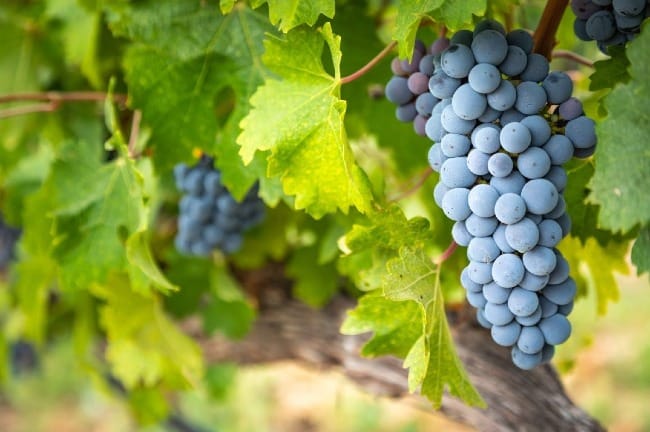Today's guest post is written by Circlewood friend, Christine Sine, and was originally published on Christine's blog, Godspacelight.
Not long ago we celebrated Earth Day, and recently I had the privilege of sharing the sermon at Seattle Mennonite church. This was not another doom and gloom talk about climate change. I think we are all aware and concerned about the future of our planet. I couldn’t open my computer in the last few weeks without another story shouting its concern. Some feel we only have a decade in which to make changes. It overwhelms us but research suggests that it does not galvanize us into action; in fact, quite the reverse. It actually makes us less likely to respond, because we feel so helpless.

We need new language and new perspectives that inspire us with the enthusiasm and passion to get out and make a difference. We need to re-enchant and re-wonder peoples’ view of the world. Part of our problem is that we have lost the language to describe the beauty around us. When the Oxford Junior dictionary was last updated, some words were removed and new ones added. All the words removed were about nature. One of them was dandelion. Can you imagine? No wonder we think of dandelions as weeds to be eradicated rather than recognizing them as one of the most nutritious plants in the garden and, to a child, one of the most beautiful too.
I love that the Bible begins and ends with a garden. The Eternal God, the cosmic gardener, starts by creating a garden. Our creator doesn’t just go to the local nursery and buy a few plants, but creates every single element of that garden. The divine spirit is infused through every aspect of creation. The flora, the fauna, even the soil, pregnant with life, shimmers with the vibrant presence and glory of God. It’s not just Eden that is a garden, though; the whole of creation is a magnificent garden created by God. Every aspect of that creation God looked at and proclaimed “It is good.”
In the Voice translation of Genesis 2:7-9 we read: “The Eternal God planted a garden in the east in Eden – a place of utter delight – and placed the human whom they had sculpted there. In this garden, the Creator of all made the ground pregnant with life – bursting forth with nourishing food and luxuriant beauty.” God took all the good stuff of creation and formed it into a garden of utter delight. It gives me a feeling of delight just to think about it.

The great Irish teacher John Scotus Eriugena taught that God speaks to us through two books - the physically small book of scripture and the big book of creation, vast as the universe. Eriugena invites us to listen to the two books in stereo, to listen to the strains of the human heart in scripture and discern within them the sound of God and to listen to the murmurings and thunders of creation and know within them the music of God’s Being. To listen to one without the other is to only half-listen. To listen to scripture without creation is to lose the cosmic vastness of the song. To listen to creation without scripture is to lose the personal intimacy of the voice.

At the end of the Bible in Revelation 22 there is another garden. This is a garden city, a garden that inspires me with possibilities for how to beautify our urban world today. Imagine it—garden cities multiplying throughout the world. I am deeply touched by the verse,“On each bank of the river stood the tree of life, firmly planted, bearing twelve kinds of fruit and producing its sweet crop every month throughout the year.” I will never forget my first experience of holding a child dying of starvation in my arms when I worked in the refugee camps on the Thai Cambodian border in the mid 80's. Then, from Africa, more images of starvation are seared in my brain. Starvation is seasonal. If the harvest is poor, stored crops will run out before new crops are ready for harvest. In the Middle Ages, it was known as the hunger season. I close my eyes and think of it—a tree that gives fruit twelve months of the year. Can you imagine abundant, lush harvests every month of the year? In God’s garden there is no hunger season, no chance of a child dying in infancy— abundance and provision for everyone and every creature at all times.
Jesus is the gardener of this new creation garden. We heard it at Easter. When Mary Magdalene encounters the resurrected Jesus as depicted in John 20:15, she was coming to the garden tomb looking for Christ’s body. Instead she finds a very much alive Jesus and she thinks he is the gardener. This is not a throwaway line. It is of cosmic significance! Jesus is indeed the gardener of the new creation and asks us to once again join him in its care. Soil must be fertilized, seeds planted, watered, and nurtured and fruit harvested. Animals must be tended and cared for. I don’t think this is a spiritual metaphor. Jesus loved creation and delighted in using it as the focus for his parables.
Several years ago I read A New Heaven and A New Earth by Richard Middleton. It both inspired and stunned me. Middleton suggested that our purpose is to transform the whole earth into a fitting and hospitable place not just for humankind but also for God to dwell. Can you imagine it? God longs for a beautiful place where all creation flourishes and all creatures enjoy abundant provision. A place in which God, too, feels welcomed and comfortable, able to walk once more in relationship with humankind. I like to close my eyes and think about this. What kind of world would God feel comfortable in? Obviously, one in which justice and peace reign, but also one in which creation is restored and cared for.
This is why Earth Day is so important for me. It is not just about climate change and our concern for a world humankind has abused, but about our longing to be able to walk once more with our God in a world of beauty where creation flourishes and all are abundantly provided for. How could this view change how we approach God’s good creation and the destruction we often unwittingly contribute to? How could we make this world more inviting for God to dwell in? What difference would it make if we saw God as the cosmic gardener and Jesus as the gardener of the new creation?

My husband Tom and I live in a small intentional community with three two-bedroom units. One of our foundational guidelines is sustainability. Recently, we became full for the first time in several years with keen gardeners, and we look forward to sharing an abundant harvest of salad greens straight out of the garden, as well as tomatoes, squash, and beans. In our parking strip, we have several fruit trees, including three apple trees that sometimes produce up to 400 pounds of apples. Over the last 15 years we have probably harvested 5,000 pounds of apples from the trees. Talk about the abundance of a generous God.
"I am not a gardener!" you might exclaim. "I have a black thumb. I don’t have space or time for gardening. I don’t like dirty hands." Well it doesn’t matter. There are many ways to become a co-worker with Jesus to create the new world that Easter beckons us into. It is not just about plants and gardens; it is also about justice and concern for those whose lives are increasingly devastated by the impact of climate change, which usually hits the poorest in our world and communities hardest.
There are simple changes that many of us could easily make in our daily lives that could make a difference, too. If you don’t like gardening, consider joining a CSA or make one day a week a car free day, or become a vegetarian for at least half of your meals. There is also a growing list of Christian organizations to join and support - like Young Evangelicals for Climate action, or Eloheh Indigenous Center for Earth Justice.
Don’t forget to have fun though! Climate change and the lifestyle changes we could make overwhelm us, but if we learn to have fun along the way it is much easier to cope. Consider going on a nature walk with a kid. Notice what they notice—and if they want to jump in the puddles, jump with them. Also get out and enjoy the beauty of your neighbourhood and take time to savour the wonder of God’s presence within it. These are my awe and wonder walks. I love to focus on a different aspect of creation on each walk and at the moment, with the beauty of spring bursting out all over, it is not hard. A Holy Sabbath walk has a similar vibe. I think the Ecological Examen Louise Conner shared would be a great accompaniment for this walk. God, the gardener of the great cosmos, and Jesus Christ, the gardener of the new creation, love every aspect of creation and want to see it restored. Let's join them.
Christine
You can reach Christine directly at seasickdoctor@gmail.com. You can also leave a comment for Christine by clicking below.
